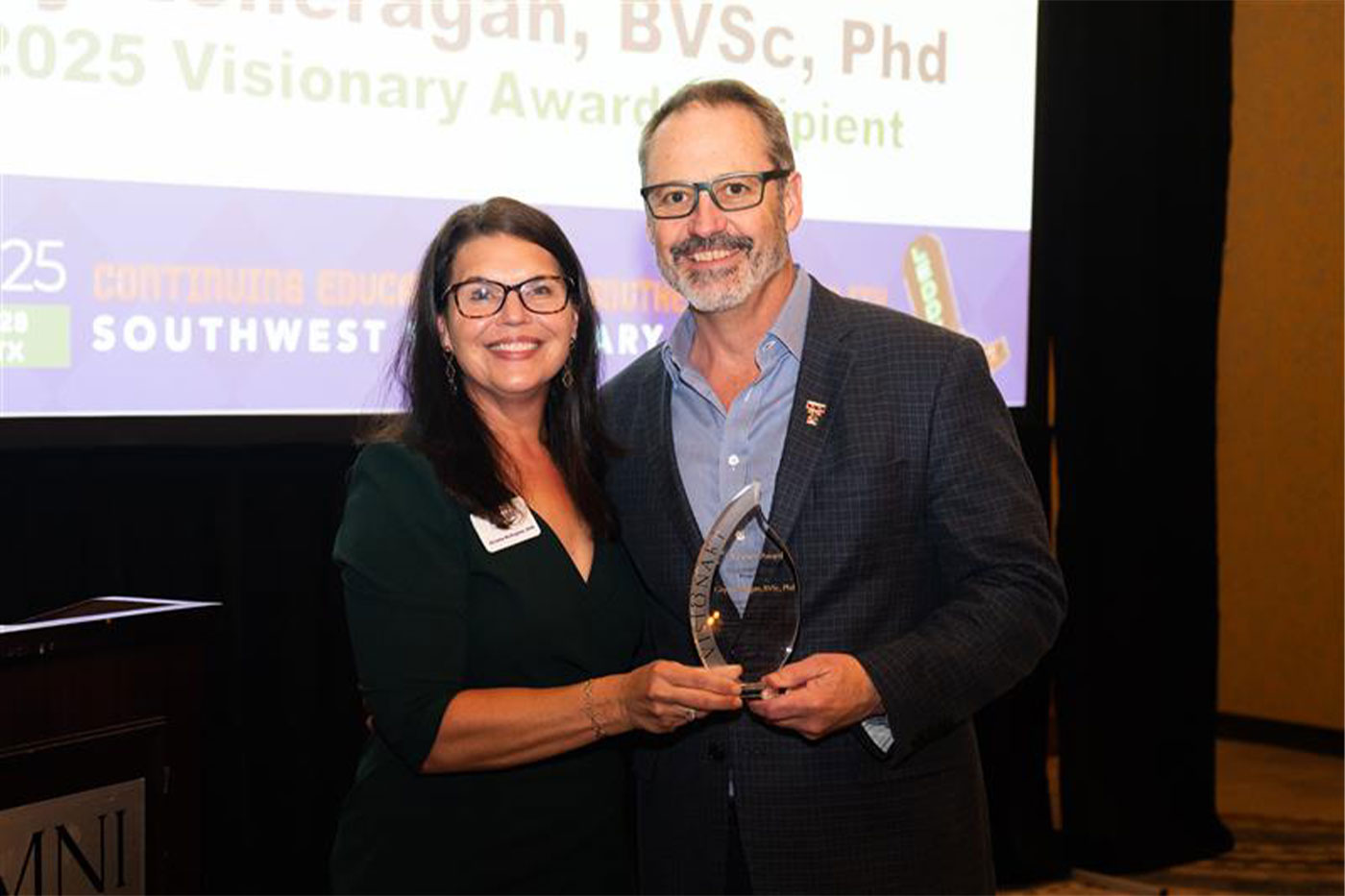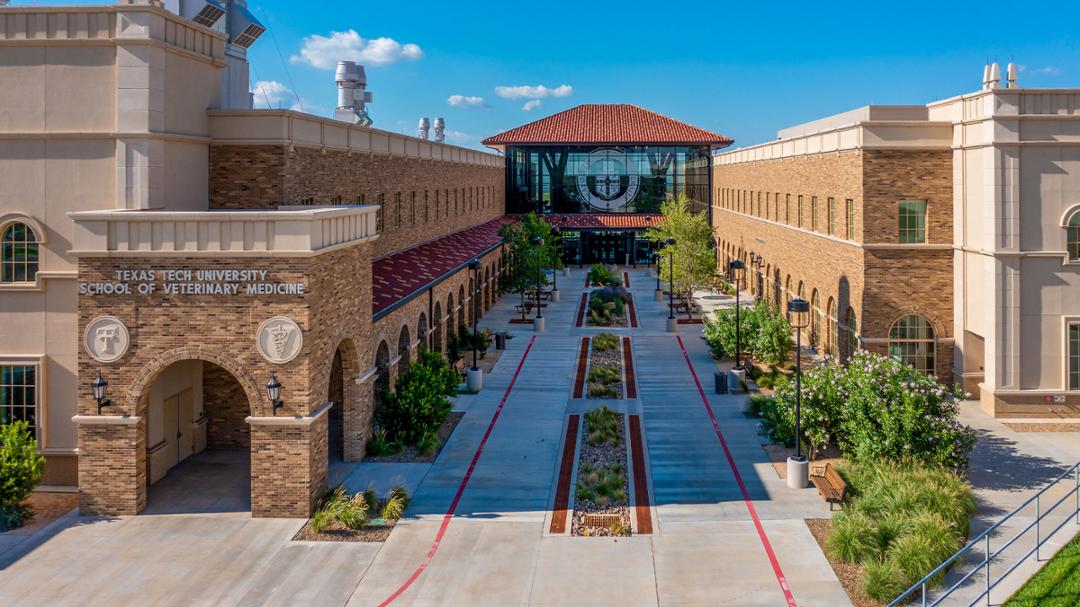Guy Loneragan received the 2025 Visionary Award from the Southwest Veterinary Symposium due to his work elevating the profession and addressing rural communities.
Guy Loneragan, dean of and professor at Texas Tech University’s School of Veterinary Medicine, earned the Visionary Award at the 2025 Southwest Veterinary Symposium.
The annual award is presented to an individual who is recognized by the profession and actively engaged in a private, public or corporate veterinary practice. The award winner’s contributions are seen as elevating the standards and goals of veterinary medicine.
Loneragan is grateful for the professional recognition, yet he views the award as more than an individual accolade.
“It’s an acknowledgement that we as a veterinary school have invested a decade of serious, intentional work,” Loneragan said. “There is a massive team who sacrificed a lot and invested a lot of time so we could all go along this path together.”
Loneragan joked that he has been up and down all of Interstate 27 since 2010 when he joined the Department of Animal & Food Sciences within the Davis College of Agricultural Sciences & Natural Resources as a researcher. He would later serve as interim vice president of research for 18 months. In 2015, he began helping lead efforts to establish the School of Veterinary Medicine, which opened its doors in Amarillo, Texas, in 2021.
While the School of Veterinary Medicine was still a distant goal, Loneragan always had the school’s mission in his sights.
“Our simple purpose is how we support the needs of rural and regional communities in Texas and New Mexico,” he said. “That’s it. That informs everything we do. There is no other university with a vet school that has the same purpose as us.”

Loneragan grew up in rural Australia, working on his family’s livestock operation with his veterinarian father. Though West Texas is not the Outback, Loneragan was keenly aware of the unique veterinary needs of rural communities.
Still, Loneragan recalled some skepticism of the idea of a new veterinary school specifically meant to address rural communities’ needs.
There was concern that Texas Tech’s veterinary school would balk at its stated mission and eventually encroach on established programs. Others in the field simply thought a veterinary school could not select students based on life experiences or regional communities.
However, initial skepticism has waned while the belief in the school’s vision has grown.
“Over time, our fiercest opponents have become our biggest proponents,” Loneragan beamed. “We worked to really engage the profession – not just going out and visiting with them but making sure that practitioners were in on the curriculum and admissions committees. They came in and participated in wet labs and other things.
“I think that gave them a real sense that we were serious about what we were trying to achieve, and we weren’t trying to achieve it for ourselves. We were working collectively toward something that wasn’t about us. It really couldn’t happen without us all working together.”
Loneragan is excited to see what the School of Veterinary Medicine’s graduates go on to accomplish. The inaugural class graduated in May 2025, and 95% have positions that meet the school’s intended purpose.
“We have some really incredible students,” he said. “The ownership and the responsibility that many of our students take for our program is very satisfying to see, and the future of the profession is in good hands.”

